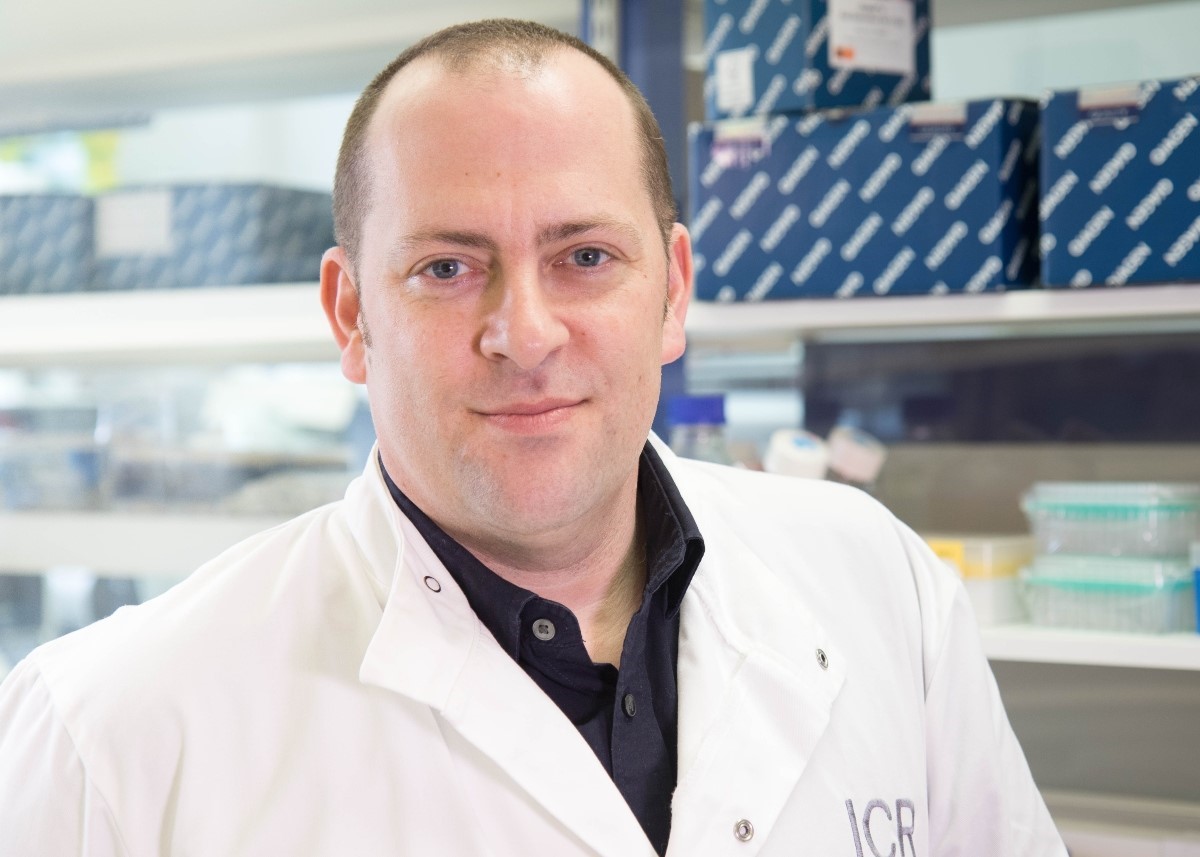New research has identified a new class of targeted cancer drugs that could be used to treat patients whose tumours have changes to the BRCA genes.
New research has identified a new class of targeted cancer drugs that could be used to treat patients whose tumours have changes to the BRCA genes.

New type of treatment
Researchers from The Breast Cancer Now Toby Robins Research Centre at The Institute of Cancer Research, London and pharmaceutical company Artios have found a new class of cancer drug, called POLQ inhibitors.
These drugs work by blocking a protein called POLQ. They can specifically kill cancer cells with changes to the BRCA genes while leaving healthy cells unharmed. The drugs also show promise in treating some cancers that have become resistant to existing drugs called PARP inhibitors.
Clinical trials are now being planned to test the new drug. If they are successful, POLQ inhibitors could be used to treat cancers with changes to the BRCA genes, including breast, ovarian, pancreatic and prostate cancers.
Exploiting cancer’s weaknesses
For some time now, scientists have known that experimentally removing the POLQ protein killed cancer cells with changes in BRCA genes. However, the drugs that prevent POLQ from working had not been found until now.
In this study, researchers found prototype drugs that stop POLQ from working. In experiments in the lab, they showed that these drugs stripped cancer cells with changes to BRCA genes of their ability to repair their DNA. This resulted in cancer cells dying, but the drugs left normal cells unharmed.
Professor Chris Lord, who co-led the research, explained: ‘All cells have to be able to repair damage to their DNA to stay healthy – otherwise mutations build up and eventually kill them. We have identified a new class of precision medicine that strips cancers of their ability to repair their DNA. This new type of treatment has the potential to be effective against cancers which already have weaknesses in their ability to repair their DNA, through defects in their BRCA genes.’
Dr Simon Vincent, Director of Research, Support and Influencing at Breast Cancer Now, added: ‘It’s hugely exciting that POLQ inhibitors could provide a targeted treatment option for people whose cancer is caused by altered BRCA genes. As a targeted treatment, we hope that POLQ inhibitors could be a kinder alternative, with less side effects than current treatment options.’
Further improving treatments
The researchers also found that POLQ inhibitors could be used in combination with PARP inhibitors, another targeted treatment for cancers with changes in BRCA genes. Combining the drugs meant that PARP inhibitors were effective even when used at lower doses.
Importantly, they also found that POLQ inhibitors were able to shrink some tumours that had stopped responding to PARP inhibitors. This means that POLQ inhibitors could also provide an alternative treatment for some, when PARP inhibitors stop working.
‘Drug resistance is a major hurdle that we must tackle to stop women dying from breast cancer, so it is also exciting that POLQ inhibitors offer a hope of overcoming resistance in some cases,’ said Simon.
The next step will be to test POLQ inhibitors in clinical trials.
‘These exciting preclinical results provide a clear rationale for future clinical studies with a POLQ inhibitor. At Artios, we are on track to initiate our POLQ clinical programme before the year end to explore POLQ inhibition in the sensitive cancer types that this study has uncovered,’ added Dr Graeme Smith from Artios Pharma, who co-led the study.
The research was published in the journal Nature Communications and was funded by Artios, Breast Cancer Now and Cancer Research UK.
You can find out more about our research, our achievements, and our ongoing projects on our website.